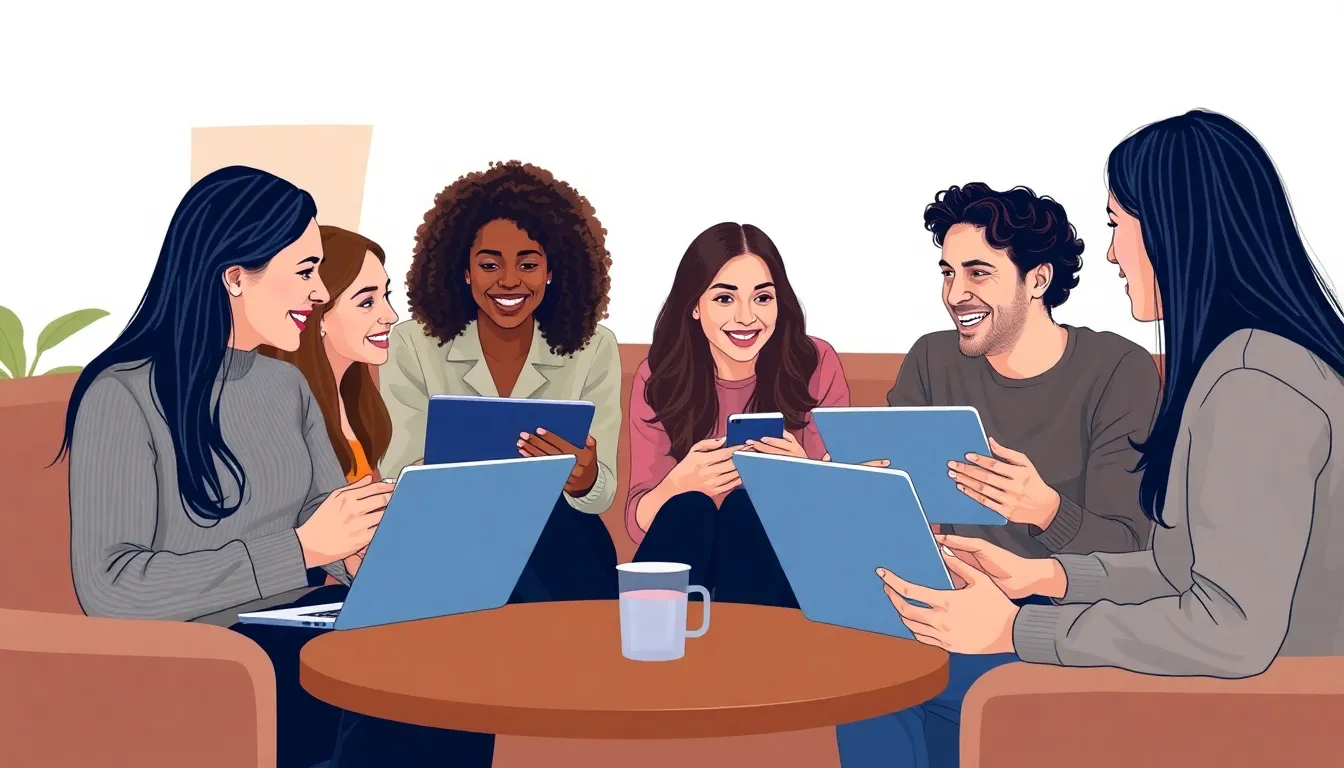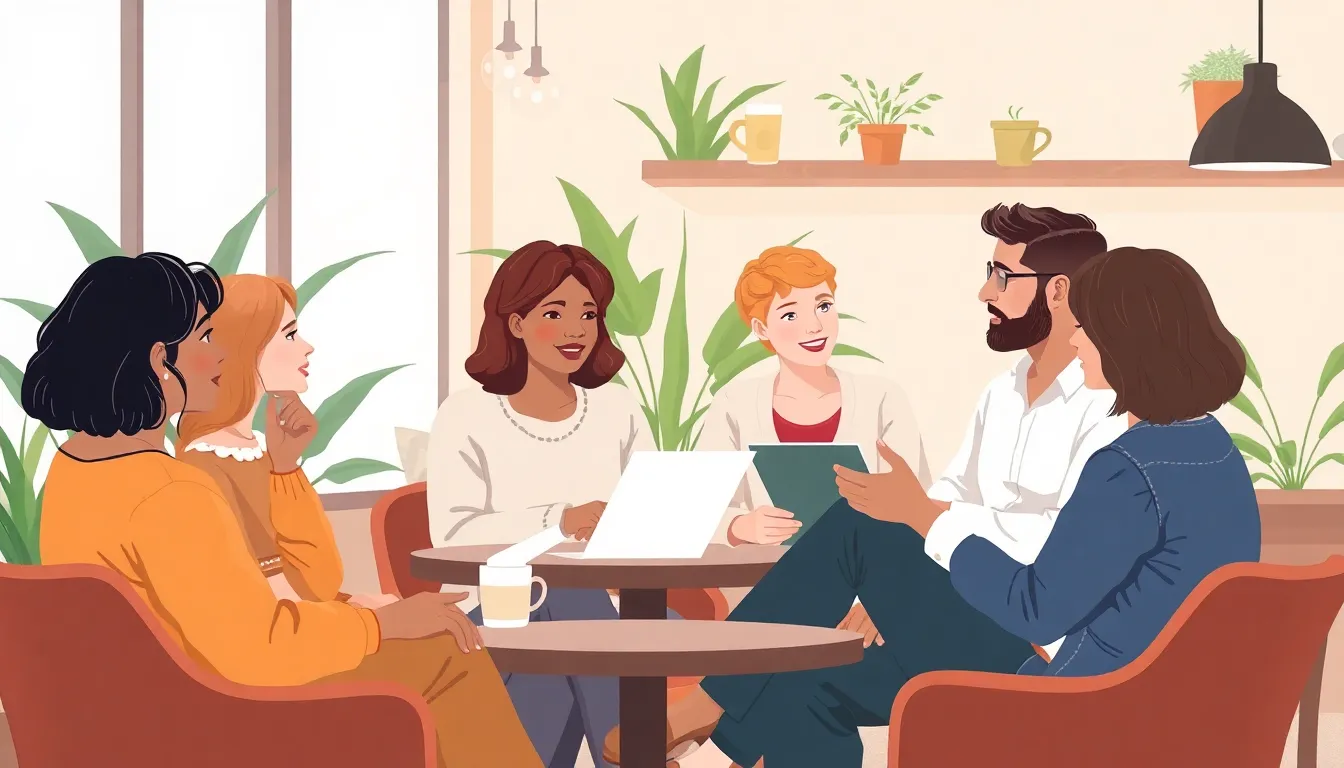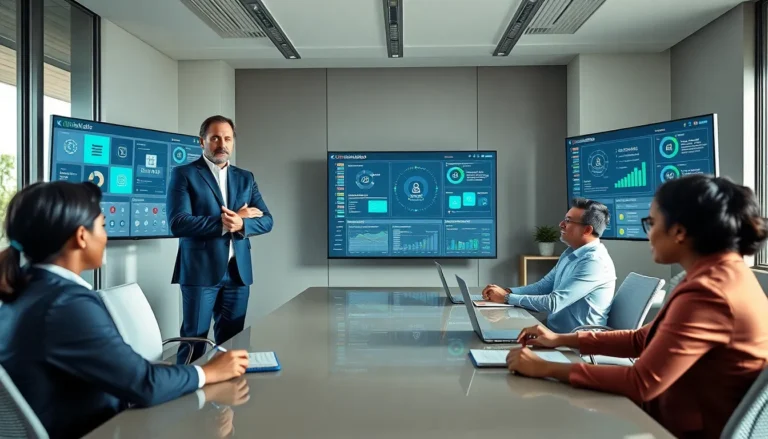Table of Contents
ToggleNavigating the wild world of relationships can feel like trying to solve a Rubik’s Cube blindfolded. Whether it’s a romantic hiccup or a friendship fumble, everyone finds themselves saying “I need relationship advice now!” at some point. And let’s face it—who wants to pay a small fortune for help when there are free resources just waiting to be discovered?
Imagine having access to expert tips and relatable stories without breaking the bank. It’s like finding a hidden gem in a thrift store—unexpected and oh-so-satisfying! From communication hacks to conflict resolution, there’s a treasure trove of free advice out there. Dive in and discover how to turn those relationship woes into wins, all while keeping your wallet intact.
Understanding the Need for Relationship Advice
Navigating relationships proves challenging for many individuals. Seeking relationship advice from diverse free resources enhances communication and conflict resolution.
Common Relationship Challenges
Miscommunication often leads to misunderstandings. Trust issues can undermine relationship stability. Conflicting priorities create tension, making compromise difficult. Differences in values and expectations result in disagreements. Each partner’s stress from external sources, like work or family, contributes to relationship strain. Recognizing these common challenges assists individuals in identifying their specific situations.
The Importance of Seeking Help
Seeking help can foster healthier relationships. Expert tips provide practical solutions for immediate issues. Engaging with relatable stories offers comfort and perspective. Resources that cater to various challenges allow individuals to learn from others’ experiences. Emotional support becomes essential for personal growth within relationships. Accessing free advice encourages proactive approaches to resolving conflicts.
Free Resources for Relationship Advice


Many individuals explore free resources for immediate relationship guidance. Various platforms offer support and information that can help navigate challenges.
Online Forums and Support Groups
Online forums provide a space for individuals to share experiences and seek advice. Users can join specialized groups focused on particular relationship issues, such as trust or communication. Engaging with others facing similar challenges creates a sense of community and understanding. Websites like Reddit feature threads dedicated to relationship advice, where users can anonymously post their concerns and receive feedback. Mental health organizations also host support groups, allowing members to share advice in a constructive environment. By participating, individuals gain insights from diverse perspectives, enhancing their ability to address relationship difficulties.
Relationship Blogs and Websites
Relationship blogs feature expert advice and personal stories that resonate with many. Readers find articles covering a range of topics, from effective communication techniques to ways of overcoming conflicts. Websites like Psychology Today and MindBodyGreen offer a wealth of knowledge for individuals seeking support. New content published regularly ensures the information remains relevant. Additionally, many blogs include practical tips and exercises that users can apply to their relationships immediately. By exploring these online resources, individuals can broaden their understanding of relationship dynamics and discover actionable strategies to improve their situations.
Tips for Finding Quality Free Advice
Searching for free relationship advice can lead to various resources. Focusing on reputable platforms enhances the quality of insights received.
Evaluating Advice Sources
Assessing the credibility of advice sources matters. Look for websites that provide content backed by experts or certified professionals. User reviews can indicate the effectiveness of a source, so consider checking testimonials. Engaging in online communities allows individuals to ask questions and observe discussions, adding to the credibility evaluation. Cross-referencing information with additional sources ensures a well-rounded perspective.
Identifying Reliable Experts
Identifying reliable experts requires thorough research. Search for professionals with qualifications in psychology or counseling. LinkedIn profiles and personal websites often showcase credentials and experience in relationship guidance. Read articles or listen to podcasts featuring these experts to gauge their advice style. Active participation in forums can also reveal advisors who consistently offer valuable insights. Verifying affiliations with professional organizations can further establish their credibility.
Utilizing Social Media for Relationship Support
Social media platforms serve as valuable tools for obtaining relationship support. Users can easily connect with others facing similar challenges, facilitating emotional exchange and practical advice.
Community Groups and Pages
Facebook, for example, hosts numerous community groups dedicated to relationship issues. These groups allow members to share experiences and seek guidance within a supportive environment. Contributors often share personal stories that resonate with others, fostering empathy and understanding. Engaging with these communities can lead to useful insights and alternative perspectives. Many groups also feature interventions from moderators or seasoned members, offering structured advice to cope with relational challenges. Participating in discussions can enhance one’s knowledge about common issues and effective solutions.
Following Relationship Counselors
Following relationship counselors on platforms like Instagram or Twitter presents another avenue for free advice. Many counselors share tips and insights directly with their audience, making expert advice accessible. Regular posts cover topics such as effective communication and conflict resolution techniques, providing practical strategies. Engaging with posts allows individuals to ask questions and seek clarification, further deepening their understanding. Subscribing to these experts often means access to free webinars or Q&A sessions that encourage active participation. This engagement creates a sense of community while offering valuable support at no cost.




